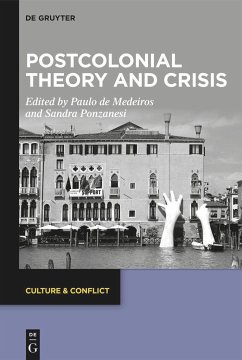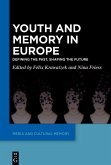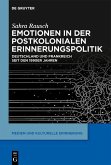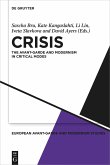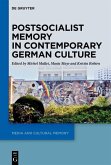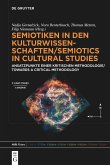In the millennial transition the prefix 'post' had come to signify more and more not just
the realisation of a 'coming after' but also of the impossibility of not seeing the present as still very much working through the wounds of the past. Yet with the appearance of pseudo-concepts such as 'post-truth' after an equally imaginary 'death of History', the logic of the 'post', itself always already under questioning, may appear to have outlived its usefulness. How to make sense of postcolonial theory in Europe in the present? One way might be to renew its significance as world conflicts have entered a new 'post-imperial phase' with the return of ideologies of empire in various parts of the world. The essays in this volume address those questions at both a conceptual, theoretical level, and through the analysis of specific case studies. In the Introduction Paulo de Medeiros and Sandra Ponzanesi review the main questions outlined above in relation to the current debates in the Humanities from their respective disciplinary perspectives. The volume is organised in four sections, each containing four chapters. Even though all the chapters present a reflection on Postcolonial Theory and Crisis, some focus more specifically on aspects of the crisis in a global perspective such as humanitarian crisis and the role of mediatization of conflicts, to issues related to human rights, refugees, migrancy, environmental crisis to questions of memory and postmemory as well as the critique of art and utopian thought.
Hinweis: Dieser Artikel kann nur an eine deutsche Lieferadresse ausgeliefert werden.
the realisation of a 'coming after' but also of the impossibility of not seeing the present as still very much working through the wounds of the past. Yet with the appearance of pseudo-concepts such as 'post-truth' after an equally imaginary 'death of History', the logic of the 'post', itself always already under questioning, may appear to have outlived its usefulness. How to make sense of postcolonial theory in Europe in the present? One way might be to renew its significance as world conflicts have entered a new 'post-imperial phase' with the return of ideologies of empire in various parts of the world. The essays in this volume address those questions at both a conceptual, theoretical level, and through the analysis of specific case studies. In the Introduction Paulo de Medeiros and Sandra Ponzanesi review the main questions outlined above in relation to the current debates in the Humanities from their respective disciplinary perspectives. The volume is organised in four sections, each containing four chapters. Even though all the chapters present a reflection on Postcolonial Theory and Crisis, some focus more specifically on aspects of the crisis in a global perspective such as humanitarian crisis and the role of mediatization of conflicts, to issues related to human rights, refugees, migrancy, environmental crisis to questions of memory and postmemory as well as the critique of art and utopian thought.
Hinweis: Dieser Artikel kann nur an eine deutsche Lieferadresse ausgeliefert werden.
"The editors have succeeded admirably in bringing together essays that speak to the construction and visibility of crises as well as to the limits and possibilities of critique. This focus makes the book relevant, timely, and provocative."
(Radha S. Hegde, New York University)
"Given that it has become fashionable to malign postcolonialism these days, usually on the flimsiest of grounds, it is highly refreshing to engage with a collection which bucks this trend and signals the enduring significance of postcolonial work not by resurrecting older models but by engendering emergent opportunities for intellectual discovery that are as innovative as they are illuminating, often (but not always) by thinking again with canonical postcolonial materials: Fanon, Césaire, Hall, and others. For these reasons, Postcolonial Theory and Crisis marks an important moment of intervention."
(John McLeod, University of Leeds)
(Radha S. Hegde, New York University)
"Given that it has become fashionable to malign postcolonialism these days, usually on the flimsiest of grounds, it is highly refreshing to engage with a collection which bucks this trend and signals the enduring significance of postcolonial work not by resurrecting older models but by engendering emergent opportunities for intellectual discovery that are as innovative as they are illuminating, often (but not always) by thinking again with canonical postcolonial materials: Fanon, Césaire, Hall, and others. For these reasons, Postcolonial Theory and Crisis marks an important moment of intervention."
(John McLeod, University of Leeds)

